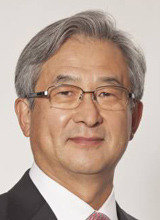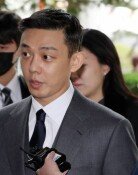Former ICTY judge unqualified for lecturer for lack of thesis scores
Former ICTY judge unqualified for lecturer for lack of thesis scores
Posted October. 03, 2016 07:25,
Updated October. 03, 2016 08:21

Kwon O-gon, a former vice president of the UN’s International Criminal Tribunal for the former Yugoslavia (ICTY) and president of the International Law Institute of Kim & Chang, Korea’s leading law firm, expressed his frustration during a telephone interview with the Dong-A Ilbo on Sunday. The 63-year-old former judge was invited to teach international criminal law at a private law school as an endowed chair professor starting from September 2016. However, he was suddenly informed by the law school that he is not allowed to. The law school assessment committee of the Korean Bar Association said that Kwon is inappropriate for teaching for his insufficient thesis score. His lecture schedule had been set and students had already signed up for his lecture.
The law school assessment committee is responsible for assessing the education, organization, operation and facilities of law schools. It also develops assessment methods and sets up standards for the assessment of law schools. If one wants to give a lecture at a law school, the applicant must have at least 150 points in total from one’s theses for the recent five years, the committee said. Scores are given differently depending on the sort of journals, and Kwon’s thesis score was only 80 points according to the committee
Kwon started his career as a judge at the Seoul Local Civil Court in 1979 and elected as the first judge of the ICTY in 2001 while serving as a vice president of ICTY from 2008 through 2012. He also worked for the ICTY for 15 years until March this year. He was a judge in the trial of former Serbian President Slobodan Milošević who led the Bosnian genocide and former Bosnian Serb leader Radovan Karadžić. Based on his experience, he was perceived as a “seasoned” expert in international criminal law both locally and internationally, but his working experience was not considered at all.
The law school, which proposed him for an international criminal lecture, had to cancel the offer because of the committee's decision. “We know that the scoring standards are not reasonable, but we have no choice because if at least one of our lecturers fails to meet the standards, the school as a whole is perceived as being below the standards,” the law school said. “The system seems to be somewhat rigid as one’s ability to give a lecture is only based on the scores given based on theses,” Kwon said with frustration.
Some legal professionals point out that the inflexible way of hiring and assessing lecturers takes opportunities away from legal experts who are strong in both theory and experience. “It is difficult to make an exception for a specific person, but we will review the current appointment system at law schools and consider ways to improve it,” a source from the Korean Bar Association said.
권오혁기자 hyuk@donga.com
Headline News
- Med professors announce intention to leave hospitals starting Thursday
- Bridge honoring Sgt. Moon Jae-sik unveiled in Pennsylvania
- Chief of Staff Chung tells presidential secretaries to stay away from politics
- US FTC bans noncompete agreements
- N. Korea launches cyberattacks on S. Korea's defense companies







